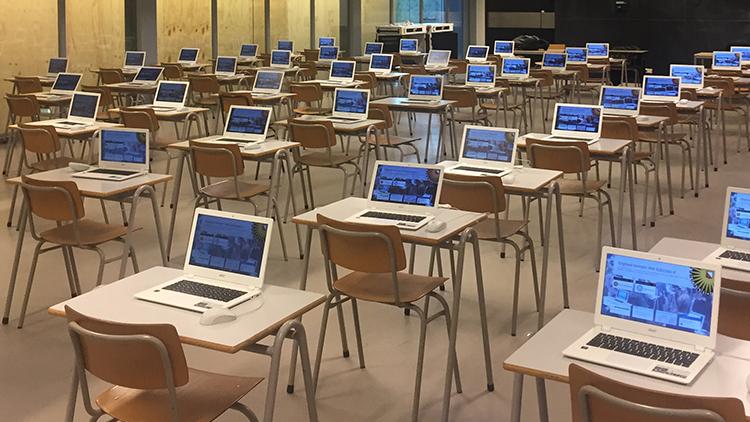Students' mental health
Study just to pass the test or strive for excellence?

The figures presented by Verwey-Jonker Institute to the Dutch Parliament are as clear as day: 44 percent of students enrolled in research universities or universities of applied sciences are suffering from psychological issues. That's a higher percentage compared to the rest of the population and also higher than young people who are not studying. In addition, women report twice as many symptoms as men.
Mental health crisis
The institute blames social media, discrimination, and the pressure to perform. The pandemic has also influenced the figures. Researchers are still seeing the effect of the pandemic on students' mental health, even though the worst of the crisis is long gone.
The results come as no surprise to the Minister of Education, Robbert Dijkgraaf, who has been insisting that students' mental health deserves more attention since the beginning of his term. Last Thursday, the Dutch House of Representatives held a debate about the topic and most members of parliament agreed with the minister. Don Ceder, an MP representing the Christian Union party, even called it "a mental health crisis."
Claire Martens-America (VVD) agrees that things are not going well, but wonders if the pressure to perform is to blame. "We should no longer demand a minimum number of credits from first-year students, it should be forbidden to select prospective students based on their results, the cum laude distinction should be abolished, and I just read today that Leiden University will ask students to submit a project instead of a thesis, as a thesis would be too much. That's not addressing the pressure to perform, that's making it impossible to excel."
"More forgiving"
For this reason, she is against the analyses made by other members of parliament, who said that society doesn't give young people any room to make mistakes (GroenLinks-PvdA) and that too much pressure is put on their shoulders due to meritocratic ideals (CDA). To these parties, higher education should be "more forgiving" so that "people will fall less hard and find it easier to get back up" (NSC).
Martens-America would even like to take it a step further, by combating the so-called zesjescultuur, a culture in which students would only study to pass their exams, nothing more. "How can we make sure that students at the vocational education level (MBO) can excel too?"
Ceder (CU) thinks VVD's point of view is too individualistic. "Isn't it a flaw of our liberal society that we only see young people who are successful, but not the young people who fail?”
Thesis
Martens-America doesn't see it that way. She wondered: "How come our generation is getting less and less resilient? I can guarantee you that deadlines exist on the work floor, hence the need to learn how to deal with that. If we don't do that anymore – by doing away with the thesis, for example – what are we even preparing them for?"
Doğukan Ergin (Denk) is not sure what constitutes a stimulus and what constitutes a barrier. "Does Ms. Martens-America agree that we should remove barriers so that as many people as possible can excel in their academic careers?"
“My colleague always says: 'Life is tough, get a helmet,'" explained Martens-America. "I don't think a thesis is a barrier, but rather something that prepares you for the real world." Claudia van Zanten (BBB) undersigned this argument. "I am not in favour of mediocrity. It is good to strive for success."
Middle ground
Minister Dijkgraaf opted for a middle ground. In his view, it is up to each study programme to decide whether or not to abolish the cum laude distinction. He thinks that "universities should alleviate the pressure to perform, but they should also be places where students learn how to deal with that pressure."
However, he warned that "even if you think that education is all about grades, you should keep in mind that good mental health helps students perform better." The minister didn't have much time to answer questions from the members of parliament, so the debate was cut short. It is set to resume in June.